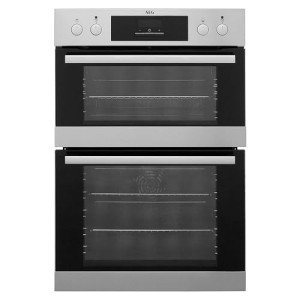You'll Never Be Able To Figure Out This Kitchen With Built In Oven's T…
페이지 정보
작성자 Reda 댓글 0건 조회 4회 작성일 25-05-20 19:06본문
The Benefits and Design Considerations of a Kitchen with a Built-In Oven
In contemporary kitchen style, built-in ovens have become a prominent function, providing both performance and aesthetics that accommodate contemporary way of lives. This post dives into the benefits of integrating a built-in oven into the kitchen space and highlights essential design considerations to make sure a cohesive and practical kitchen environment.

Understanding Built-In Ovens
Built-in ovens are created to be seamlessly integrated ovens and hobs into kitchen cabinets, which distinguishes them from traditional freestanding ovens. These appliances come in numerous configurations, including single-wall ovens, double-wall ovens, and even microwave that share the very same integrated electric oven cabinet area.
Typical Types of Built-In Ovens
| Type | Description | Ideal Use |
|---|---|---|
| Single Wall Oven | A basic oven with one compartment for baking and roasting. | Small kitchen areas or everyday baking. |
| Double Wall Oven | Two separate oven compartments allowing for simultaneous cooking. | Large households or regular bakers. |
| Mix Oven | A microwave and traditional oven in one unit. | Quick meals and versatile cooking choices. |
| Steam Oven | An oven created particularly for steam cooking. | Health-focused cooking and detailed recipes. |
Advantages of Built-In Ovens
The appeal of built in ovens and microwaves-in ovens can be credited to a number of key advantages, including:
1. Space Efficiency
Built-in ovens are created to fit within existing kitchen cabinetry, maximizing important floor area. This feature is especially helpful in smaller kitchens, where every square foot counts.
2. Structured Appearance
The seamless combination of a built-in oven produces a refined appearance in the kitchen. Offered in various finishes, built-in ovens can match or match cabinets, offering a modern-day and unified design visual.
3. Boosted Functionality
Built-in ovens frequently use innovative features, such as smart innovation, multiple cooking modes, and even self-cleaning options. This can boost cooking experiences and improve the effectiveness of meal preparation.
4. Enhanced Accessibility
With appropriate setup of a built-in oven, users can increase accessibility, avoiding the need to flex over to reach a lower oven compartment. Eye-level cooking appliances permit cooks to monitor their meals quickly and lower the risk of burns from bending down to check on a baking item.
5. Energy Efficiency
Many modern built-in ovens use sophisticated cooking technology that can result in lower energy intake. Features like convection cooking can minimize cooking times while making sure even heating, eventually conserving energy.
Design Considerations for a Kitchen with Built-In Ovens
While built-in ovens use lots of benefits, cautious factor to consider in the design phase is important to maximize their benefits and integrate them efficiently into the kitchen design. Here are some key elements to think about:
1. Cabinet Configuration
When preparing for a built-in oven, homeowners must carefully consider cabinet layouts and configurations. Sufficient ventilation is crucial for appropriate operation. It's vital to leave adequate area for air flow, which can differ depending upon the oven design.
2. Height Preference
The setup height of the oven should be figured out based on the primary users. A built-in oven situated at eye level can make it easier to utilize, especially for those who frequently cook.
3. Complementary Appliances
In a kitchen setting, built-in ovens frequently match other built-in appliances such as microwave ovens and warming drawers. Choosing appliances that work well together can further enhance the kitchen's design.
4. Visual Choices
Picking finishes and colors that harmonize with the overall kitchen style is crucial. built in ovens and microwaves-in ovens are offered in numerous choices, built in oven including stainless-steel, black, and even custom cabinet completes that can disappear effortlessly into the cabinetry.
5. Budget plan Considerations
Built-in ovens can range significantly in cost, from affordable alternatives to high-end designs packed with functions. It's vital to set a practical spending plan that enables the desired requirements without compromising the general kitchen restoration.
Frequently asked questions
1. What is the distinction in between a built-in oven and a freestanding oven?
built In Oven-in ovens are integrated into cabinets and provide a seamless look, while freestanding ovens are standalone systems that can be moved easily.
2. Do built-in ovens require expert installation?
Yes, built-in ovens generally need expert installation due to their combination with cabinets and electrical requirements.
3. Are built-in ovens more pricey than traditional ovens?
In basic, built-in ovens can be more costly due to their setup procedure and advanced features, however there are lots of options offered to fit varying spending plans.
4. How do I keep a built-in oven?
Routine cleansing and upkeep, such as using the self-clean function, inspecting seals, and guaranteeing appropriate ventilation, are important for preserving a built-in oven.
5. Can built-in ovens be utilized in smaller sized kitchen areas?
Yes, built-in built oven ovens can be advantageous in smaller sized kitchens because they take full advantage of space performance and can be set up at eye level for benefit.
Incorporating a built-in oven into a kitchen style is an excellent choice for improving performance and aesthetic appeals. By considering the style tips and advantages discussed in this article, property owners can produce an unified kitchen area that caters to their cooking needs while looking elegant and elegant. Whether renovating an existing kitchen or developing a brand-new one, built-in ovens offer a level of elegance and functionality that aligns flawlessly with modern culinary practices.
댓글목록
등록된 댓글이 없습니다.